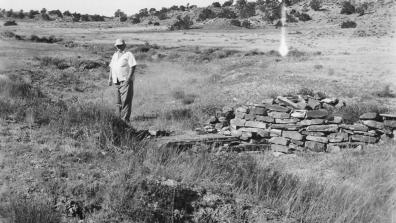
March for Science. Source: ©Becker1999/ CC-by-sa 2.0.
Knowledge Systems and Collective Life
The Department on Knowledge Systems and Collective Life studies the relationship between how we know and how we live together—that is, between knowledge systems, which determine what kinds of knowledge are valued, how knowledge is produced, and who is authorized to know, and collective life, which encompasses a variety of efforts to fashion our lives with others, including but not limited to conventional politics. Researchers in the department use historical and ethnographic methods to explore the relationship between these overlapping domains in the past and present.
The research of the department centers on three themes: Environmental Knowledge in Times of Crisis, Politics and Practices of Data and From Trust in Science to Knowledge in Relation. These themes inform the projects of individual researchers, as well as the collective projects of the department's working groups.
The department is also home to a laboratory that supports researchers using oral history and audiovisual media. Open positions and fellowships in the Department are advertised on the Institute-wide Career page.







